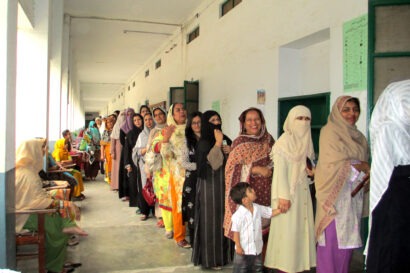At the request of the ICTD, Professor Richard Bird generously agreed to review the new World Bank publication Innovations in Tax Compliance, which proposes a new framework to help guide the design of tax reform efforts. Richard was the founding Chair of the Advisory Group of the ICTD, and is a long term advisor to the World Bank, and in those roles has always been the best kind of friend: endlessly supportive, but also consistently committed to challenging ongoing work, in order to make it better. His review of Innovations in Tax Compliance is no exception: both tough and deeply insightful, and an important contribution both to making it better and clarifying what it aims to achieve.
In my reading, Professor Bird poses three big picture questions – or challenges – about the framework, which serve to clarify what that framework seeks to achieve, and what it adds.
Is there much here that is really new?
Professor Bird writes early on that, “it contains little that should be news to anyone already engaged with tax issues in developing countries…the more novel part of the paper is its attempt to combine these elements into a potentially operational framework to guide tax reform.” We agree entirely. In many respects the Innovations in Tax Compliance project is motivated not by the need to generate transformative new insights, but instead to bridge the too often substantial gap between what we have learned from research and how tax reform appears to happen in practice. Our instinct is that a key barrier to adopting the best research insights consistently into the practice of tax reform has been the absence of a clear framework that pulls disparate research insights together, and offers an initial guide to their operationalisation. The hope is that this framework helps to ensure that research insights about the critical roles of political economy constraints, of trust building, and of strategic prioritisation in reform efforts are more regularly reflected in the design of reform programs.
Will this framework actually contribute to better outcomes in practice?
If the goal of the work is to bring research insights more consistently into the practice of tax reform then, as Professor Bird writes, “the proof will be in (the eating of) the pudding”. There are, as he notes, significant barriers to translating a neatly packaged framework into concrete changes in practice. Politics is an unpredictable, and daunting, barrier to reform almost everywhere. Reform processes always demand flexibility and adaptation, and rarely follow the initial roadmap. Most broadly, “generalities, while often useful in pointing out the questions that should be asked, seldom tell us much that provides a clear guide to the best solution for any particular problem.” It is this last point – the distance between generalities and specific solutions – that offers the clearest motivation for the Innovations project, and for what comes next. At root, the project aims to push reformers to ask the right questions, rooted in research – and to provide tools to ensure that the specific answers to those questions are rooted first and foremost in understanding local specificities.
Professor Bird issues a sort of challenge: “until the World Bank, or someone, carries out a variety of detailed case studies utilising the suggested framework…all one can really say…is that it is a worthy attempt.” Echoing that view, the project has, indeed, stressed case studies that ask whether the framework is actually working. The first have been carried out in Kaduna, Nigeria and in Georgia, with promising initial results. More case studies are in the pipeline. As importantly, with each case study we are also developing accompanying materials to support teams in the field (e.g. how can genuine political commitment be identified and assessed? What strategies can be used to identify binding constraints on reform? How can we assess drivers of trust in different contexts?) – and seeking to introduce an ever expanding group of practitioners to the ideas and approaches reflected in the framework.
Does the framework say enough about how to navigate political barriers to reform?
Professor Bird notes the importance of highlighting political barriers to reform, but also questions whether Innovations says enough on this point. He writes:
To take a simple example, while the Bank paper clearly recognises the critical importance of ‘political will’ … it does not reach what would seem to be the most obvious conclusion following from this recognition, namely, that if the ‘will’ is not there, no ‘framework’ for reform, no matter how clearly set out, is likely to be followed.
[footnote] Perhaps one way to judge whether a country is serious may be simply to consider the extent to which the data held by other public agencies that would be useful to the tax agency is actually made available to that agency. In all too many countries, such data silos are defended fiercely by those, both within and without the administration who think, often correctly, that knowledge equals power. If a President or Minister of Finance is unwilling to deal with such easily resolved internal problems, the likelihood that a real tax reform will be supported from the top seems small.
Here we agree completely with Professor Bird’s emphasis on the need to be politically realistic – though we disagree with the contention that this is not addressed by the framework. Indeed, his comment captures perhaps the single most critical operational recommendation that emerges from the framework: that reformers need clear strategies for identifying – and tracking – the existence of genuine political commitment to reform.
Similar to Professor Bird, Innovations (p.43-44) suggests that the best proof lies in the willingness, or not, of government to take politically costly, but financially inexpensive, reform steps: “If governments are unwilling to take financially low-cost steps of proven efficacy to improve enforcement, this may be an important signal of the absence of genuine political commitment to reform”. As Professor Bird notes, the willingness, or not of government agencies to share data internally is perhaps the best – but often overlooked – indicators of political commitment. A key piece of the “operational toolbox” to accompany the framework is an exhortation to those designing reform to engage in this kind of analysis. Meanwhile, the comments make clear that this part of our message needs to be delivered more clearly and forcefully.
Ultimately, we are enormously grateful to Professor Bird for offering his insight and reactions. Our hope is that other readers similarly find the framework “ambitious and stimulating” – but, as Professor Bird notes, the real test now lies in translating the framework into improved outcomes in practice.



